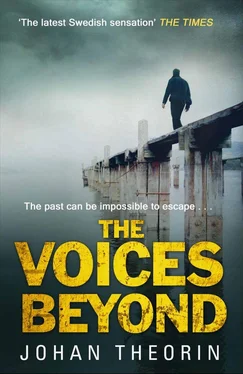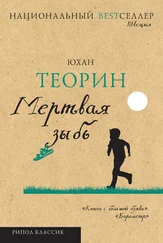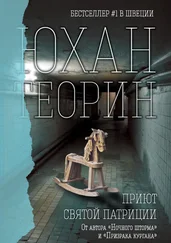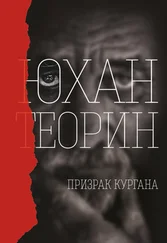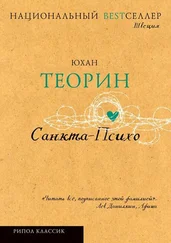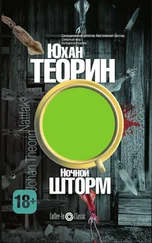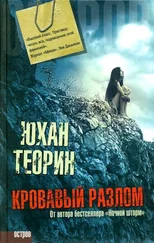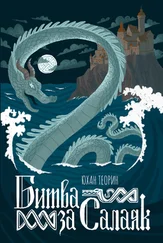He needed a proper bed.
He had to find a new hiding place, somewhere in or near Stenvik.
It was seven o’clock, and the summer’s day had begun. Cars and trucks were starting to zoom past along the main road.
The Homecomer started the car. He pulled out of the car park and headed north.
Right now, he was on the run, but it was only temporary.
The New Country, May 1937
After six long years, Aron is back in Leningrad as a new man: Vladimir Nikolajevitch Jegerov. Back by the wide bay leading out into the Baltic Sea — the bay that was the gateway to the new country for Aron and Sven.
Back then, they stayed in a hotel, but now Vlad is living in the barracks while he waits for a single room of his own.
Vlad the soldier has not brought very much with him when it comes to mementoes of the long, hard years in the north. A Party membership card, a uniform, a few minor scars on his face and a torso pitted with the marks left by scratching countless mosquito stings and louse bites. And his name and citizenship, of course. It has become Aron’s name now, his whole identity: Vlad Jegerov. The Swede within him is carefully locked away.
The old concrete buildings in Leningrad are not as tall as he remembers them. The city seems low, stretching out along the banks of the shining River Neva, but new palaces exuding power have been built in honour of Stalin.
Vlad’s workplace is not as beautiful as the palaces, but it is substantial and impressive. It is Kresty Prison, a red-brick five-storey building surrounded by a wall four metres high and built in the shape of a huge cross. On each floor the corridors run straight through the prison, with rows of cell doors on each side. There are thousands of prisoners behind those doors, twenty or thirty men in each cell. Very little noise seeps out, and it takes a death scream to persuade the guards to open them.
The cellar is also soundproofed. That is where Vlad will be working, in the innermost interrogation room. The air is thick with the smell of sweat and blood and cheap cleaning products, and the doors are even more impressive.
The new colleagues Vlad encounters in the corridors are tall and grim-faced, but they have a certain style and elegance; they move gracefully in their dark-blue NKVD uniforms. They glance at his grey coat and worn boots and smile at one another. Vlad realizes he is a country bumpkin.
‘Come in, Comrade Jegerov.’
His new commanding officer, Captain Rugajev, welcomes him into his office and offers him tea and a piece of dried black pudding. The captain carefully studies the new guard’s Party membership book and other documents, giving Vlad the chance to look around the room.
He sees Stalin gazing into the future on the wall behind Rugajev, of course. To the right of his portrait is a poster featuring a Soviet worker dragging a long, venomous serpent out from under a stone, with the caption ‘We will eradicate spies and saboteurs!’
Eventually, Rugajev nods and hands back the papers. Then he smiles at Vlad’s scruffy uniform, just as amused as everyone else in Kresty. He gets to his feet.
‘Look in here, Comrade.’ Rugajev opens a cupboard, which is full of neatly pressed uniforms and shiny leather boots. ‘We were issued with new outfits in the spring as a reward for our hard work. Choose one that fits you.’
Vlad quickly glances along the row and picks out a uniform. Rugajev hands over a gun belt with a leather holster, and a brand-new pistol. A Mauser.
‘There is a great deal of night work here in Kresty Prison.’ The captain nods towards the portrait on the wall. ‘Our leader works late into the night, and so do we.’ Then he nods towards the picture of the worker and the serpent. ‘And that is our job, day and night. But you were hunting down our enemies up in the north, weren’t you, Comrade Jegerov? All the time?’
Vlad nods. He understands what the Mauser is for.
‘Can you type, Comrade?’
‘No, Captain.’
‘Then learn. You will be conducting many interrogations, and they must be documented and filed. Go and see Comrade Trushkin in the morning.’
Before he does anything, Vlad changes his clothes in one of the guardrooms. He takes off his old uniform and puts on his new black boots, billowing blue trousers with sharp, dark-red lines, a light-brown jacket, the leather gun belt with the Mauser in its holster and, finally, the wide peaked cap with a brown band around it and the red star in the centre.
He looks in the mirror and lifts his chin, like a sheriff. Now he fits in here. He is ready.
And there is a lot of work, just as Rugajev said.
The first prisoner Vlad interrogates is an emaciated, worn-down man who is fetched from his cell in dirty underclothes; he was arrested for crimes against Article 58 of the Soviet Penal Code, which is always used when charging enemies of the state.
Vlad positions himself on the cement floor just a metre away from the prisoner, his legs wide apart. Perhaps Rugajev has given him something simple to start with, because this man is already broken. Fear shines in his eyes when he is placed in the interrogation chair.
Vlad hears the rustle of papers behind him. He turns his head; he hadn’t noticed, but an older colleague has entered the room and sat down at a desk over by the wall. He is there to record proceedings and is feeding a sheet of paper into his typewriter.
It is time. Vlad looks at the prisoner. ‘Tell me about your crimes,’ he says quietly.
The man starts talking almost before Vlad has finished, his head drooping. ‘I am a Trotskyite. At the beginning of the year, I decided to sabotage several machines that were absolutely essential for production at my tractor factory in Charkov. I threw hammers and chisels into the machinery, and it was only thanks to the intervention of a quick-thinking foreman that a total shutdown was avoided.’
‘What else did you do?’
‘I recruited several other workers to my Trotskyite group, in order to increase the incidence of sabotage within the factory.’
‘And who are these individuals?’
The saboteur starts reeling off names, and the typewriter clatters into action.
They are given a dozen or so names.
When the saboteur has finished, he seems relieved. He looks up at Vlad. ‘I am evil,’ he says. ‘Aren’t I?’
He is still looking at Vlad, who does not reply.
Aron doesn’t know what to say either.
The typewriter has stopped clattering. In the silence that follows, the last sheet of paper is removed, and the typist hands it to Vlad.
It is time for the saboteur’s signature.
Vlad holds out the document and the prisoner signs it with a trembling hand.
As Vlad watches him sign the confession, he feels better. Standing erect in his new uniform in front of an enemy of the state is terrific. Getting him to admit his crimes is a small but important victory in a major war.
After completing his first few shifts, Vlad begins to learn how to type. How to feed the paper into the roller, how to tap out the words. Comrade Trushkin teaches him with patience, one key at a time.
Grigori Trushkin is a couple of years older than Vlad, a Russian worker’s son who, like many other guards, was trained in the Young Pioneers and Komsomol. He was only four years old when the Bolsheviks brought down the Tsar; he remembers nothing other than the Communist government. After leaving school, he was forged into a young OGPU soldier when the wealthy farmers had to be broken at the beginning of the thirties. Trushkin can discuss Marxism and class struggles without any problem, but he also enjoys chess, and loves to play Stravinsky’s Rite of Spring on his gramophone, in spite of the fact that it has been banned for many years.
Читать дальше
